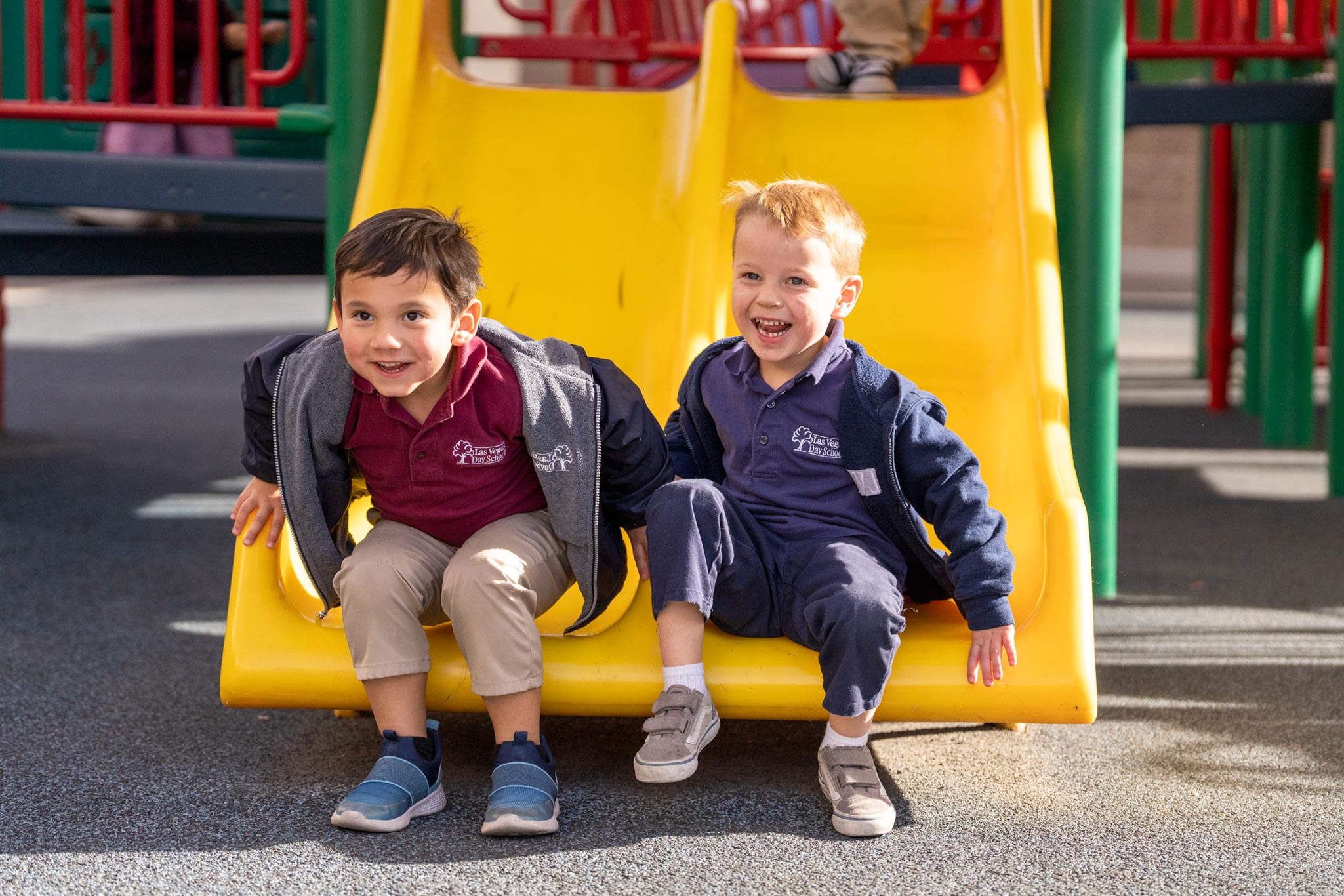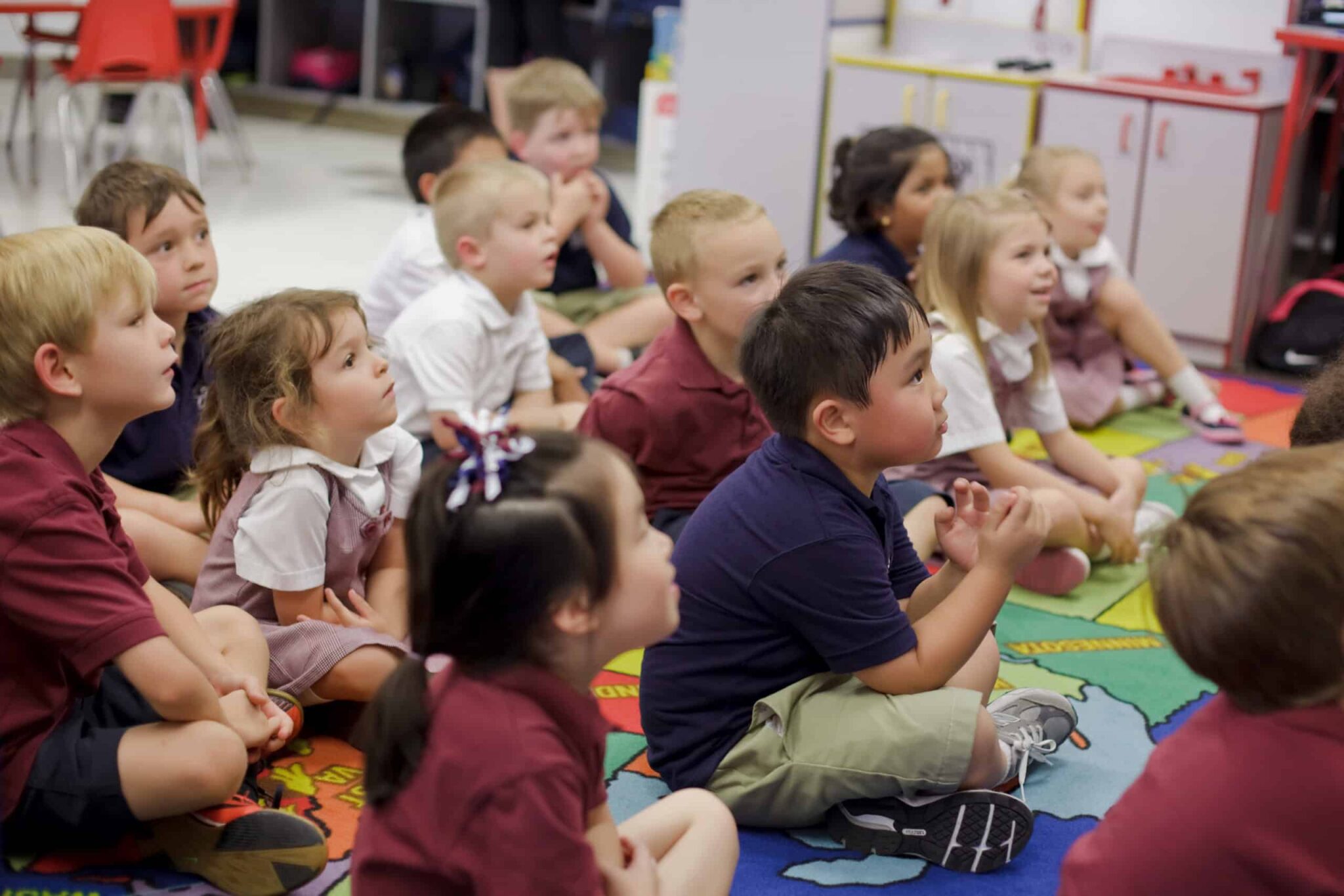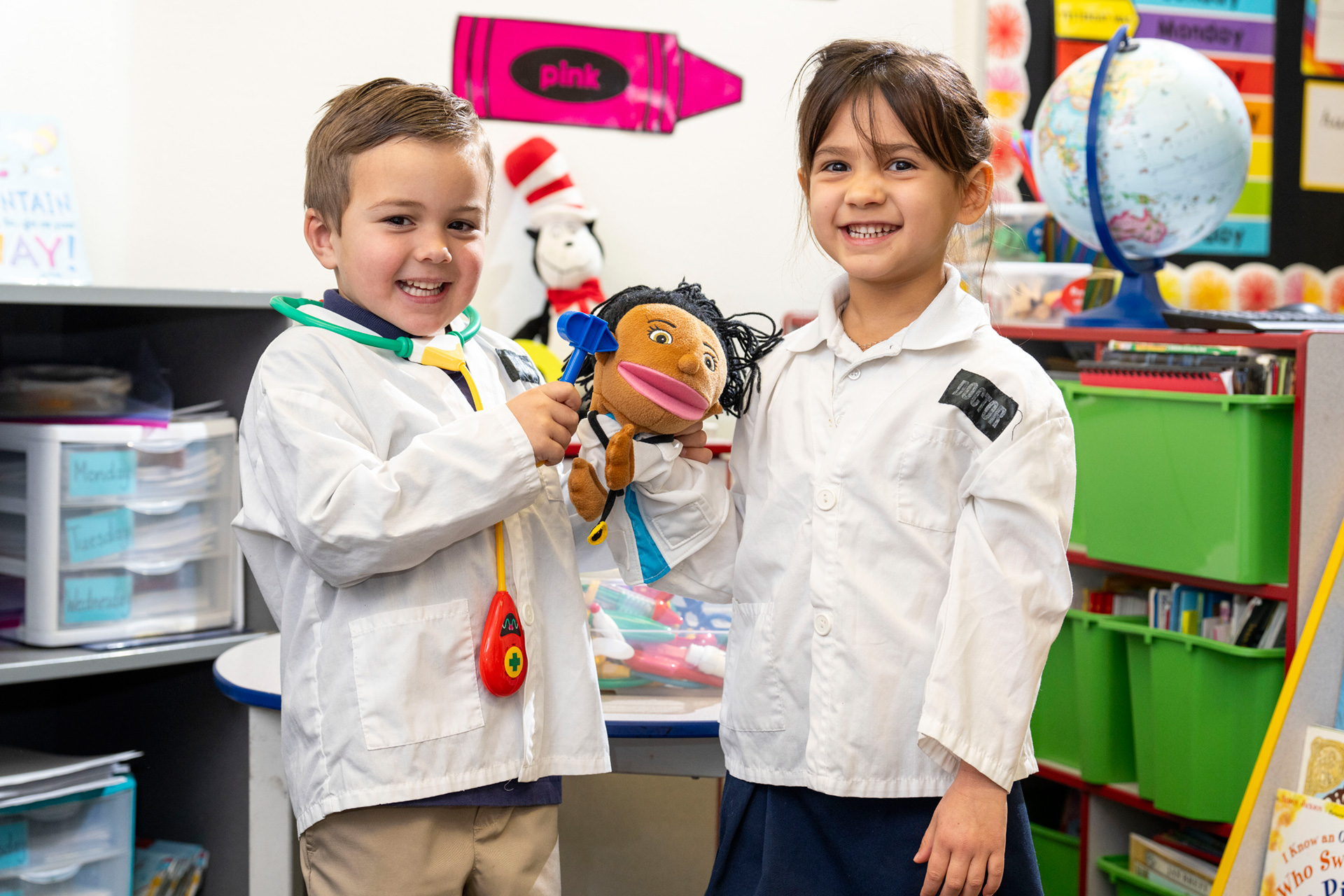Quality College: A Comprehensive Overview to Programs That Foster Discovering and Growth
Quality school plays an important function in shaping a youngster's future. It integrates vital knowing with social-emotional growth. Different programs and approaches are used to accommodate diverse needs. The combination of technology and extracurricular tasks enhances the academic experience. Understanding these aspects is essential for fostering development. What details techniques can institutions apply to assure every kid grows in this foundational stage?
Understanding the Relevance of Very Early Education
While numerous identify the significance of education and learning at any type of phase, recognizing the significance of very early education is essential for setting a strong foundation for long-lasting knowing. Study shows that early childhood experiences exceptionally affect cognitive and social development. Throughout these formative years, children are especially receptive to finding out, making it crucial to provide stimulating and nurturing atmospheres. Quality early education and learning programs cultivate vital abilities such as interaction, analytic, and emotional guideline.
Very early education can connect gaps in socio-economic disparities, making sure all kids have access to the sources needed for success. By emphasizing play-based discovering and interactive activities, early education and learning cultivates curiosity and a love for knowing. Additionally, it supports the development of vital believing skills that are crucial in later scholastic searches. Eventually, buying early education and learning returns substantial lasting advantages, forming individuals who are better outfitted for the obstacles of an increasingly complicated globe.
Standard Educational Program: A Tried And True Technique
Conventional curricula have actually long focused on core topics, giving pupils with essential expertise in areas such as science, language, and mathematics arts. This organized knowing setting promotes technique and uniformity, enabling pupils to concentrate on foundational abilities. Furthermore, teacher-led instruction plays an essential role in leading trainees through the educational program, ensuring that finding out goals are satisfied efficiently.

Core Topics Focus
Numerous instructional viewpoints have emerged over the years, the focus on core subjects within traditional educational program remains a cornerstone of quality institution education. These core topics normally consist of mathematics, reading, creating, scientific research, and social research studies, creating the foundational understanding essential for trainee growth. By concentrating on these disciplines, typical curricula purpose to gear up pupils with essential assuming abilities and a versatile understanding of the globe. This structured approach fosters vital proficiency and numeracy skills, enabling trainees to engage meaningfully with even more complex ideas later on in their education. In addition, the mastery of core subjects is frequently watched as an essential sign of academic success, additional solidifying their value in elementary school learning atmospheres, and ensuring a regular instructional standard across varied populations.
Structured Learning Environment
A structured understanding setting is important for cultivating scholastic development in grade institution settings, as it provides a regular framework within which students can flourish. Typical curricula often stress clear expectations, schedules, and regimens, permitting pupils to create a feeling of safety and security and concentrate on their discovering. This predictability aids reduce distractions and promotes technique, allowing pupils to involve better with academic content. In addition, an organized environment assists in the steady intro of complicated principles, guaranteeing that foundational abilities are mastered prior to proceeding. Such a method not only sustains cognitive growth but additionally nurtures social abilities, as students find out to browse their obligations within a defined system. Ultimately, an organized discovering atmosphere lays the groundwork for long-lasting knowing practices.
Teacher-Led Instruction
Teacher-led direction remains a keystone of standard curricula, supplying a effective and direct ways of providing academic content. This approach emphasizes the instructor's duty as an authority figure and facilitator of expertise, leading students through structured evaluations and lessons. With a concentrate on direct direction, instructors can clarify complicated ideas, making sure that pupils understand fundamental skills essential for future understanding. This technique often includes making use of books, talks, and specific training strategies, which have actually been revealed to create measurable academic outcomes. In enhancement, teacher-led guideline cultivates a regimented understanding environment, enabling regular tracking of trainee development. In spite of the emergence of alternative academic techniques, the efficiency of teacher-led guideline continues to be verified by its enduring presence in educational setups.

Cutting-edge Technology-Driven Knowing Programs
Many quality schools are welcoming innovative technology-driven learning programs to improve instructional outcomes and engage trainees in purposeful means. These programs leverage devices such as interactive software application, virtual fact, and flexible knowing platforms, enabling tailored finding out experiences tailored to individual student needs. By incorporating innovation right into the curriculum, educators can cultivate partnership and important thinking skills among students.
Coding and robotics classes urge analytical and creative thinking, while on the internet sources offer accessibility to a vast variety of information. Furthermore, gamified knowing applications make complicated topics extra friendly, encouraging pupils to get involved actively in their education and learning.
Educators additionally benefit from technology-driven programs This Site with data analytics, which enable real-time analyses of pupil efficiency. This enables them to readjust their mentor methods quickly. Generally, these cutting-edge programs are transforming traditional instructional techniques, preparing students for a future where electronic proficiency is vital.
Extracurricular Tasks for Holistic Development
Incorporating innovation into the instructional landscape has opened brand-new opportunities for trainee engagement, but alternative advancement prolongs past the class. Extracurricular tasks play a vital role in fostering well-rounded development among quality school pupils. These activities, ranging from arts and sports to clubs and volunteering, offer opportunities for children to explore their passions and develop vital life skills.

Engagement in sports urges teamwork, technique, and physical fitness, while imaginative searches boost creativity and self-expression. Academic clubs promote crucial thinking and partnership, allowing trainees to use classroom understanding in real-world contexts. Volunteering instills a sense of area and social duty, enriching pupils' understanding of varied perspectives.
Social-Emotional Knowing: Structure Strength and Compassion
While academic achievement is very important, social-emotional learning (SEL) plays a critical role in supporting strength and empathy in elementary school pupils. SEL programs intend to develop necessary skills such as self-awareness, emotional law, and social communication, which are important for students' overall health. By taking part in tasks that promote Resources understanding of feelings and social dynamics, students find out to navigate obstacles and develop healthy relationships.
Including SEL right into the curriculum promotes a supportive atmosphere where children can share their sensations and learn to feel sorry for others. This approach not just enhances emotional intelligence yet likewise helps trainees manage obstacles, advertising strength. Study shows that trainees that take part in SEL efforts show enhanced behavior, scholastic performance, and favorable peer communications. Integrating social-emotional discovering right into grade school programs is necessary for equipping trainees with the abilities essential for scholastic and individual success, inevitably forming compassionate and durable individuals.
Caring Unique Education Programs: Supporting Diverse Learners
Unique education and learning programs play a necessary duty in sustaining varied students within elementary school settings. With individualized education and learning strategies (IEPs) and comprehensive class approaches, these programs intend to fulfill the one-of-a-kind demands of each pupil. Efficient application promotes a setting where all kids can flourish academically and socially.
Individualized Education Plans
Embellished Education Plans (IEPs) work as important devices in the area of unique education and learning, created to support varied learners with special needs. These legitimately binding papers describe details educational objectives, holiday accommodations, and solutions tailored to every trainee. Established collaboratively by educators, experts, and moms and dads, IEPs ensure that trainees with disabilities have access to a complimentary ideal public education (FAPE) This tailored approach promotes significant development by resolving specific strengths and challenges. Regular evaluations and updates to the IEP facilitate continuous changes, ensuring that instructional approaches remain effective. Inevitably, IEPs empower trainees by promoting an inclusive discovering setting that identifies and values their originality, allowing them to thrive academically and socially.
Inclusive Classroom Techniques
Developing an inclusive classroom atmosphere is essential for properly sustaining varied learners, as it promotes partnership and involvement among trainees of differing abilities (Grade School). Inclusive class approaches entail distinguished direction, where educators adjust lessons to fulfill individual demands. This may consist of different teaching approaches, such as aesthetic aids, hands-on tasks, and innovation assimilation. Furthermore, promoting peer support through participating knowing groups urges trainees to help each other, enhancing social abilities and compassion. Utilizing universal style principles guarantees that all analyses and products come. Teachers need to likewise carry out clear expectations and regular routines to produce a straight from the source predictable environment. By focusing on inclusivity, educators can cultivate a favorable environment that values variety and encourages every trainee to thrive academically and socially
Parental Participation: Enhancing the Educational Experience
While several elements add to a youngster's academic success, adult involvement attracts attention as an essential element in improving the total understanding experience. Research study indicates that kids whose parents proactively participate in their education and learning have a tendency to perform far better academically and display improved habits in college. This participation can take various kinds, including attending parent-teacher meetings, volunteering in class, or supporting research routines.
Additionally, efficient interaction between teachers and parents promotes a collaborative setting that benefits pupils. When moms and dads and instructors collaborate, they can identify and attend to obstacles extra promptly and properly. In addition, adult support motivates kids to value education, instilling a development frame of mind that promotes lifelong learning.
Frequently Asked Questions
Exactly How Can I Select the Right Quality College for My Child?
To select the ideal elementary school, parents must assess academic performance, extracurricular offerings, instructor credentials, college culture, and location. Looking for and seeing schools comments from other parents can better aid in making a notified decision.
What Are the Expenses Connected With Quality School Programs?
The prices connected with quality college programs differ extensively, consisting of tuition charges, materials, extracurricular tasks, and transport. Households must additionally take into consideration added expenditures such as uniforms and possible fundraising payments for improved academic experiences.
Exactly How Do Grade Schools Assess Trainee Progression and Efficiency?
Elementary school assess pupil progress and performance through a combination of standardized examinations, educator evaluations, class participation, and project-based jobs. Grade School. These techniques give insights right into individual discovering, ability growth, and overall scholastic success
Are There Options for Homeschooling Within Conventional Grade College Frameworks?
Yes, numerous traditional quality institutions supply choices for homeschooling through hybrid programs, permitting students to learn in your home while taking part in choose school activities or courses, supplying flexibility and individualized education within a structured framework.
What Is the Duty of Teachers in Fostering Pupil Creativity?
Educators play a necessary role in promoting pupil creative thinking by urging expedition, providing varied materials, and producing a secure environment for expression. Their advice influences students to assume critically and establish cutting-edge ideas with joint understanding experiences.
A structured understanding environment is important for cultivating academic development in grade school setups, as it provides a regular structure within which pupils can prosper. With an emphasis on straight direction, instructors can make clear intricate concepts, making certain that pupils grasp foundational abilities essential for future knowing. In addition, teacher-led direction cultivates a self-displined discovering atmosphere, allowing for consistent surveillance of pupil development. Various grade colleges are accepting innovative technology-driven knowing programs to improve educational end results and involve trainees in meaningful means. While academic accomplishment is vital, social-emotional learning (SEL) plays an essential role in nurturing strength and empathy in quality school pupils.